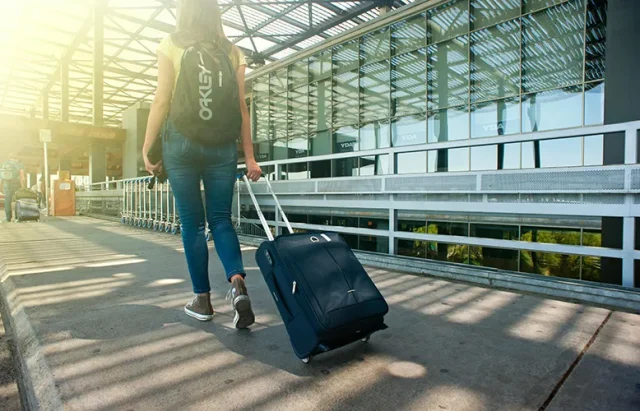
Travel often brings the joy of exploring new places, cultures, and experiences. However, it can also present unexpected financial dilemmas, such as running out of funds or facing unforeseen expenses.
In such cases, many travelers ask: is it okay to borrow money during a trip? This is a significant consideration one shouldn’t lightly take because it may impact not only one’s financial health but also personal relationships. Let’s discuss it here.
Assessing Your Situation
First, determine if the need to borrow money is due to an emergency or a non-essential desire. Emergencies can include medical issues, lost travel documents, or missed flights that could strand you. In these cases, borrowing might be justified.
For non-essential spending, such as upgrading your accommodations or splurging on shopping, take a moment to critically assess if they’re really necessary. Borrowing money for such purposes might provide immediate gratification, but it can lead to financial strain and regret later on for several reasons.
First, when you borrow money, you’re committing future income to pay back a debt, which can limit your financial flexibility. This means that the money you might have allocated for other needs or savings will instead go towards repaying the borrowed amount, potentially with interest.
If you’ve used a credit card or taken out a loan, the interest costs can accumulate quickly, making the total amount repaid significantly higher than the original expenditure.
Secondly, the psychological impact of knowing you have debt can add stress and detract from the enjoyment of your purchases or experiences. Once the initial thrill of the upgrade or purchase fades, you’re left with the reality of needing to pay back what you owe, which can lead to regret, especially if the expenditure wasn’t truly necessary.
Be Financially Responsible
Understanding the financial implications of borrowing money is important. If you’re considering a loan or using a credit card, be aware of interest rates and repayment schedules. These can significantly increase the amount you owe, making it harder to recover financially after your trip.
Having a repayment plan is also essential. Whether through a structured payment plan or setting aside a portion of your income upon return, knowing how you’ll tackle the debt can relieve stress and prevent financial issues down the line.
Another key consideration to ask is: should I pay a charge in full or settle? The answer largely depends on the type of debt incurred and your agreement with the lender. For example, paying the charge in full can help avoid interest charges and improve your credit score if you’ve used a credit card.
However, in some cases, if you’ve borrowed money directly from a person and can’t repay the total amount immediately upon return, discussing the possibility of settling for a lesser amount or extending the repayment period can be beneficial.
It’s important to approach such negotiations with honesty and a clear plan, ensuring that both parties agree to the new terms. This flexibility can provide a more manageable path to clearing your debt while maintaining trust and goodwill with your lender.
Where To Borrow?
Borrowing money from friends or family during a trip can quickly solve immediate financial issues. However, it’s essential to consider the potential impact on your relationships. Money matters can strain even the strongest bonds, especially if repayment terms aren’t clearly discussed and agreed upon.
To minimize potential conflicts, be transparent about your situation and establish clear repayment terms before borrowing. This includes how much you need, what it’s for, and when you plan to repay it. Such clarity can help preserve your relationships and ensure everyone is on the same page.
For other financing options, using a credit card with a manageable interest rate or tapping into an emergency savings account might be a better option. These choices can provide a temporary solution without the potential complications of borrowing from others.
Alternatively, consider personal loans from online lenders, peer-to-peer lending platforms, specialized short-term travel loans, personal lines of credit, and salary advances from your employer. These can offer more favorable terms, lower interest rates, and even faster approval and fund disbursal than other traditional borrowing methods.
Alternatives to Borrowing
Ideally, preventing a situation where you need to borrow money is still better because it allows you to maintain control over your financial health and avoid the pitfalls of debt. This sidesteps the stress and potential relationship strains that come with borrowing.
There are also many ways to earn money while traveling that can provide another income stream without dipping into savings or borrowing. These may include the following:
- Freelancing
- Teaching English
- Work exchange programs (i.e., work a few hours a day in hostels, farms, or cafes in exchange for accommodation and sometimes meals)
- Selling photography
- Blogging or vlogging
- Performing street art or music
- Offering tours or experiences (i.e., offer tours or unique local experiences to other travelers)
- Digital nomad services
- Crafts and art sales
Engaging in these income-generating activities while traveling helps cover your expenses and enriches your travel experience. It’s an excellent way to turn what could have been a financial challenge into an opportunity for growth and learning.
Final Thoughts
Borrowing money during a trip can be a practical solution in urgent scenarios. However, it’s important to approach the decision carefully. Remember, the goal of travel is to create positive experiences and memories, not financial stress.





